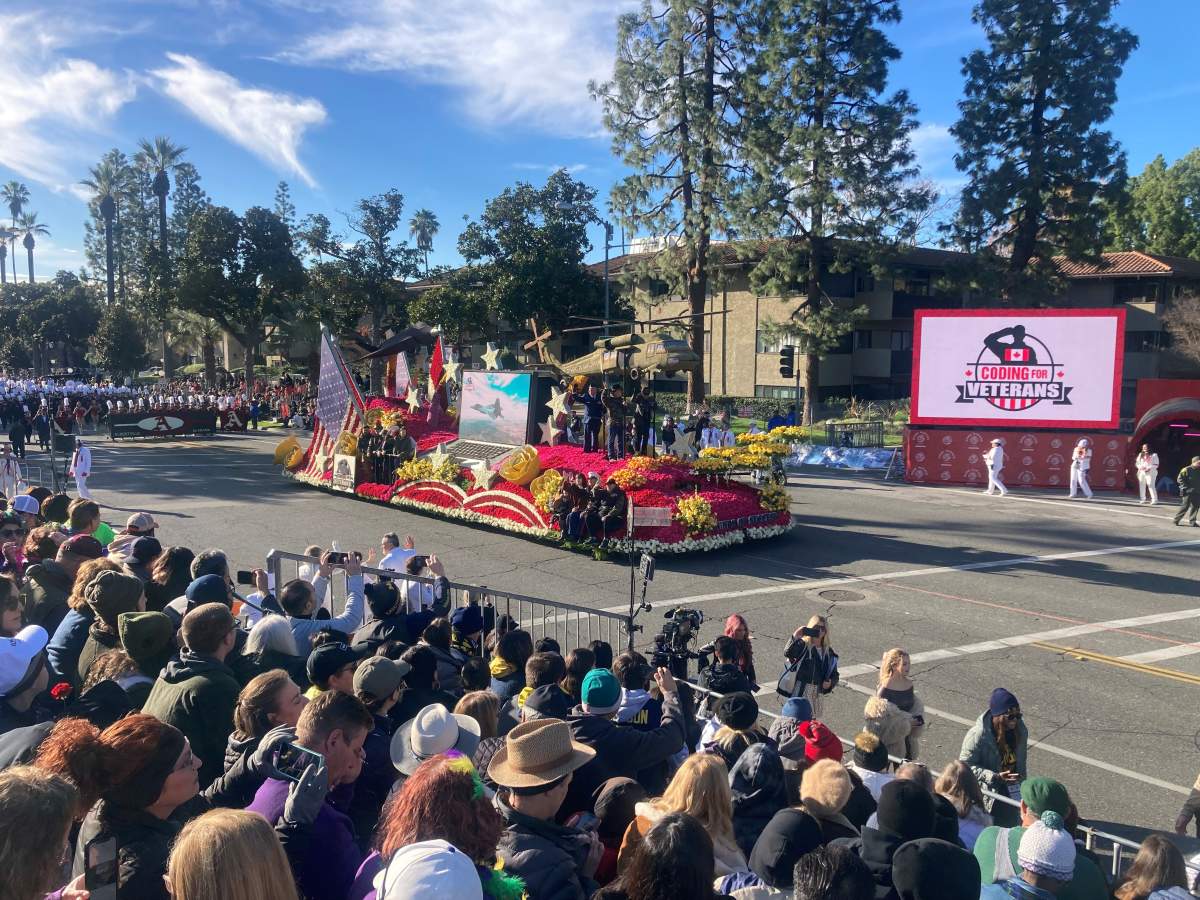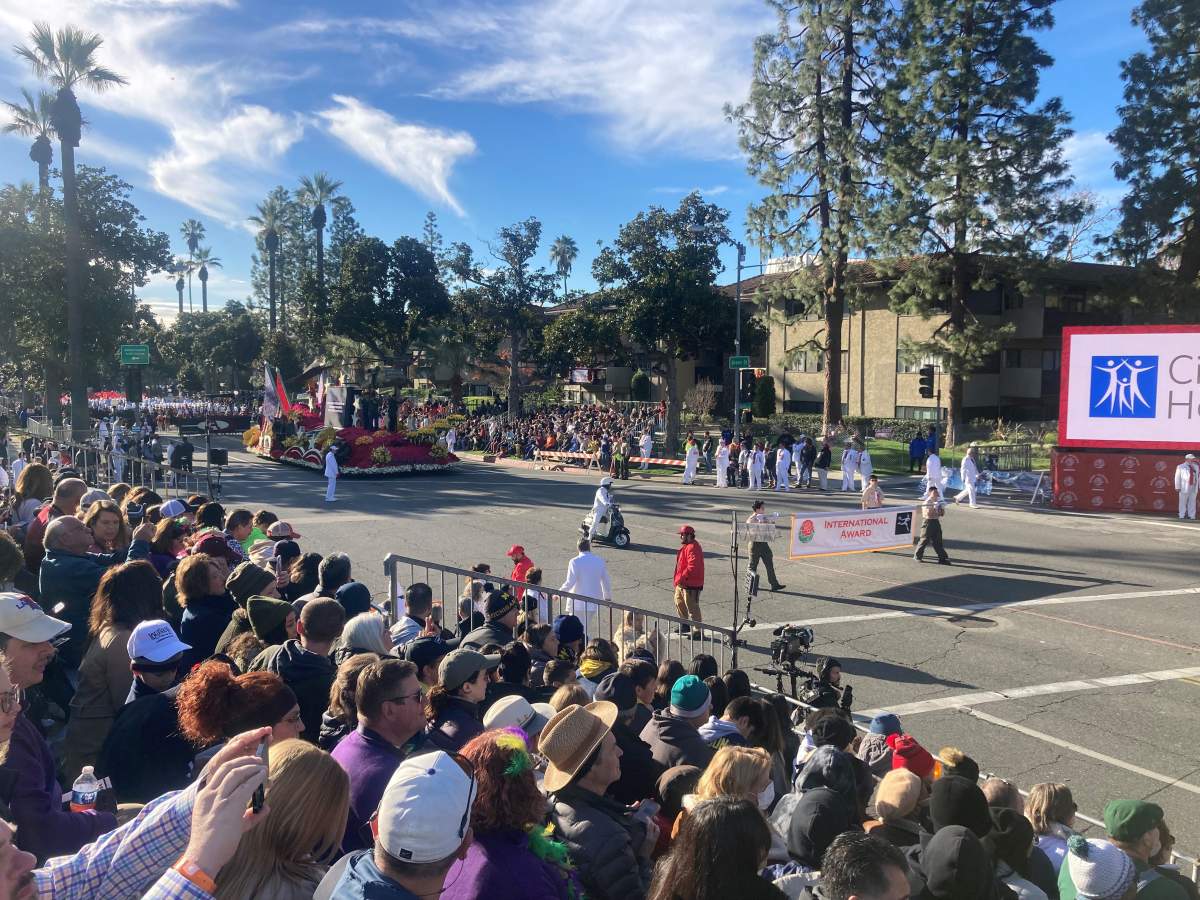A Canadian float captured the top international prize at the Tournament of Roses Parade in Pasadena, Cali., on New Year’s Day.

The float is from Coding for Veterans, a Toronto-based not-for-profit that provides courses to train current and former military members in the information technology sector.
The program in Canada is delivered online in partnership with the University of Ottawa.
“A number of American veterans apply to our program. Consequently we’ve expanded as of today, Jan. 1, to now allow US military veterans to take our retraining program. It’s delivered 100 per cent online in partnership with the University of Southern California,” said Coding for Veterans executive director Jeff Musson from Pasadena on Monday.
He said the organization started in November 2019 with five students. Around 500 students have been enrolled since the fall.
Musson said there’s an over 85 per cent job placement rate for graduates and that in Canada there’s over 175,000 IT jobs projected to go unfilled in the next 12 to 18 months.
“What better way to honour the sacrifice of the men and women that have been serving then providing them with good stable careers upon graduation,” Musson said.
He said winning the top prize the Rose Parade has been phenomenal

Get daily National news
“We are the first Canadian float in 35 years to be in the Tournament of Roses Parade and having won the best international award outside of the US is an honour. Today we had Canadian military veterans and US military veterans riding on the float,” Musson said.
“There were nine veterans in total, and there was a surprise family reunion with a current serving marine. (He) came back from deployment and his wife didn’t know, and we had a reunion for him. It was really emotional. It was on live TV down here.”
He said there are over 45 students in the program from Alberta and that they are getting jobs in Alberta.
Muson said the exposure Coding for Veterans has received from being in the parade has been incredible.
“Since this morning we’ve had 221 people apply to our program – normally that would take probably two-and-a-half months to do and we condensed it into a two-hour parade.”



Comments